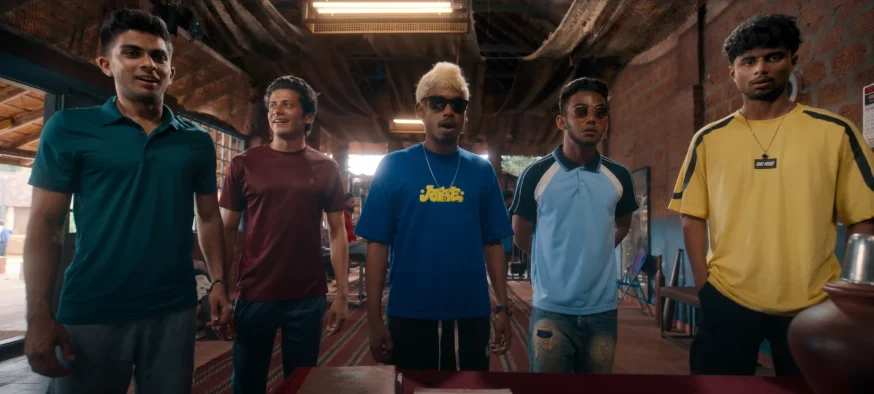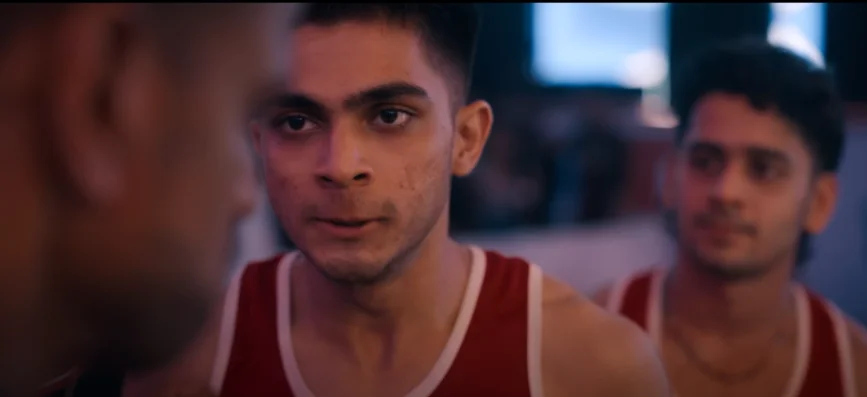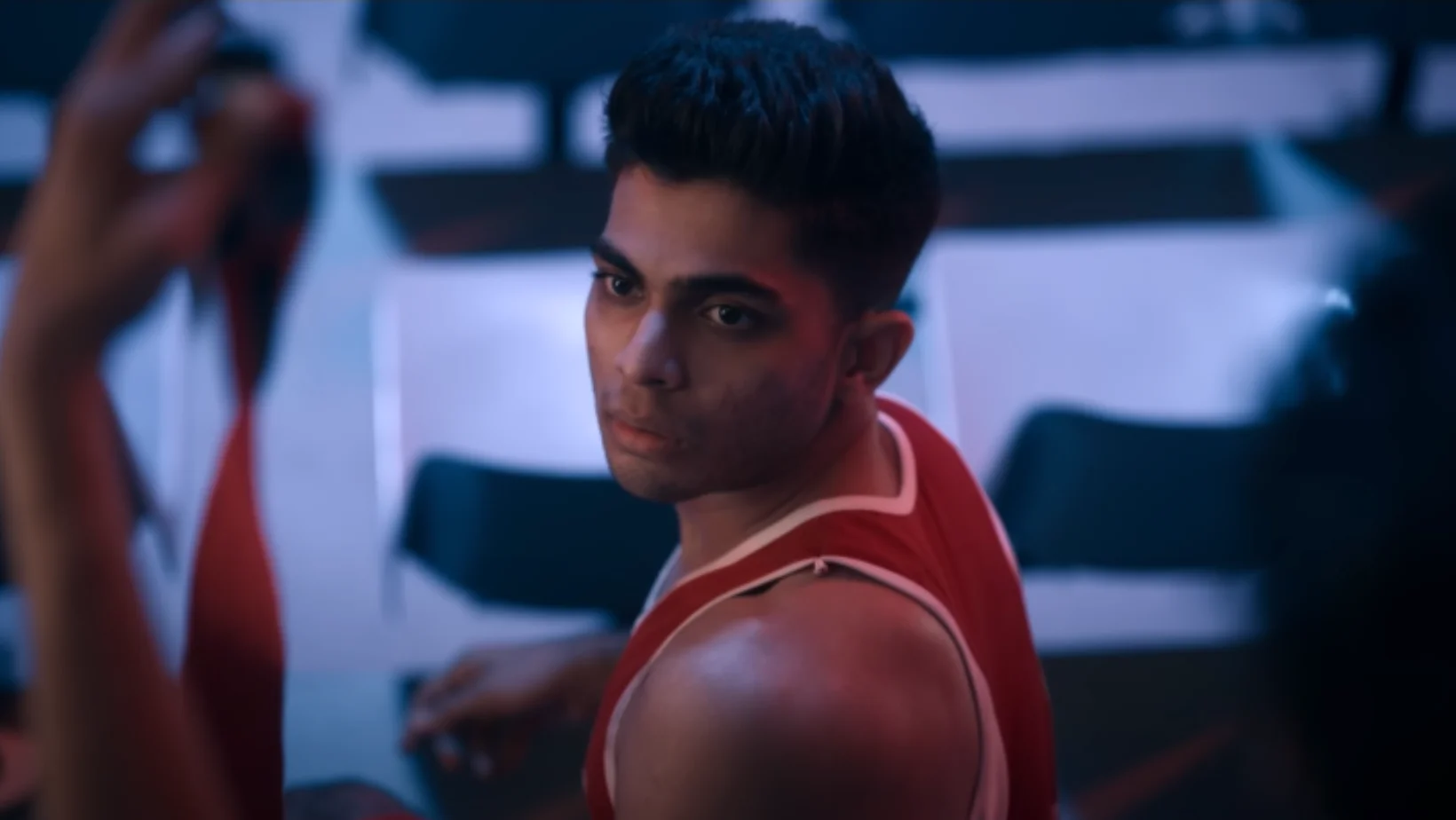Alappuzha Gymkhana Review: What If a Sports Drama Didn’t Care About Winning?
The last time I walked out of a theatre after a Malayalam sports drama and felt this visually energized, it was Basil Joseph’s Godha. But while Godha wrapped its wrestling ring with layers of emotion, ambition, and familial tension, Alappuzha Gymkhana walks into the boxing ring with a different purpose altogether. It doesn’t ask you to feel—it invites you to watch. To laugh, to groove, and above all, to enjoy a wildly stylized, self-aware sports movie that knows exactly what it’s doing.
Khalid Rahman’s latest outing is many things: a visual feast, a comedy at heart, and a spirited subversion of the sports drama formula. But it is also something rare—a film that deliberately refuses emotional manipulation. This is not the kind of story that lingers in your thoughts days later. It’s more like a flashy, confident performance that ends with a bow and a wink.
From the very first frame, Alappuzha Gymkhana is bursting with energy. The visuals are stunning—however, not as ambitious as his previous directorial Thallumala. Whether it’s the interiors of the gym, the alleyways of Alappuzha, or the slow-motion punches in the ring, every frame is meticulously crafted. You can see the deliberate intent behind the lighting, the colour palette, and the transitions. He’s operating in a stylized register here, closer to the grammar of music videos and video games than gritty realism. And it works, because the film never promises realism to begin with.
Naslen plays Jojo Johnson—a name that already hints at the film’s playful tone. Jojo is no prodigy. He’s not the best boxer. He doesn’t have a tragic backstory. He’s just… average. And that’s what makes his presence interesting. He’s a vehicle through which we view the world of Alappuzha Gymkhana, but the story doesn’t revolve around him alone. It’s a team story, an ensemble piece. Everyone gets their moment, their lines, their quirks. There’s no single hero here, which is a refreshing departure from the usual underdog narrative.

Most sports dramas in Indian cinema—especially regional ones—tend to lean heavily on tropes. You know the arc: the struggling athlete, the doubting coach, the dramatic injury, the last-minute win. Alappuzha Gymkhana knows that playbook too well—and chooses not to follow it. There’s no triumphant climax where the team defies all odds and wins the final match. In fact, the film barely concerns itself with the idea of winning at all. The real victory here is in the camaraderie, the humour, and the ability to look good doing what you love.
And this is where Khalid’s direction stands out. After films like Anuraga Karikkin Vellam, Unda, and Love, we’ve seen his range—he’s someone who can handle nuance, tension, and deeply human moments. But with Alappuzha Gymkhana, he seems to take a step back from depth to double down on delight. The film is airy, light-hearted, and almost unapologetically surface-level. But that doesn’t mean it lacks craft—quite the opposite. It takes a lot of control to make something feel this casual and effortless.
The film’s humour works in small, scattered bursts—situational comedy, quirky one-liners, and oddball character traits. The writing never tries too hard to be funny, which keeps the laughs coming organically. This isn’t slapstick or satire; it’s the kind of humour that emerges from how weird and wonderful people can be when they’re passionate about something… even if that something is losing boxing matches in style.

However, if you’re someone who walks into a film expecting narrative heft or emotional payoff, Alappuzha Gymkhana might leave you wanting more. There’s a curious emptiness at its core. You laugh, you’re dazzled, but when it’s over, there’s nothing to unpack. There are no deeper revelations, no inner journeys. The film ends the moment you step out of the theatre. And that feels entirely intentional. It’s a movie built to entertain in the now.
The music, unfortunately, doesn’t quite match the visual swagger. It does its job in the background but never rises to the occasion. In a film that’s so reliant on rhythm and energy, stronger music could’ve elevated some moments even more. That said, the background score does manage to create enough momentum to keep things flowing.
One thing that deserves praise is how Alapuzha Gymkhana contributes to the largely underexplored world of sports dramas in Malayalam cinema. We haven’t had many films in this genre, and even fewer that break the mold like this. It’s not just a sports drama—it’s a genre remix. It tells us that not every sports film needs to be a journey of hardship and redemption. Sometimes, it can just be a playful, well-shot, chaotic ride through the boxing rings of a small-town club.
Final Verdict?
Alapuzha Gymkhana is not a film you carry home in your heart. It’s a film you wear like a cool jacket for a night out—stylish, sharp, and gone by morning. It’s visually slick, confidently made, and full of good laughs. Don’t go in expecting emotional resonance or a life-changing climax. Go in for the vibe, the punches, the style, and the small joys of a story that doesn’t pretend to be more than what it is.
It’s not about who wins. It’s about how cool you look when you throw the punch.

I can’t stop talking about films, so I blog!
I started The FourthWall, my film blog, to share my thoughts on films and shows with fellow movie buffs, and over the years it has become my happy place. Come join in for some interesting conversations on cinema… and sometimes books and fashion!








